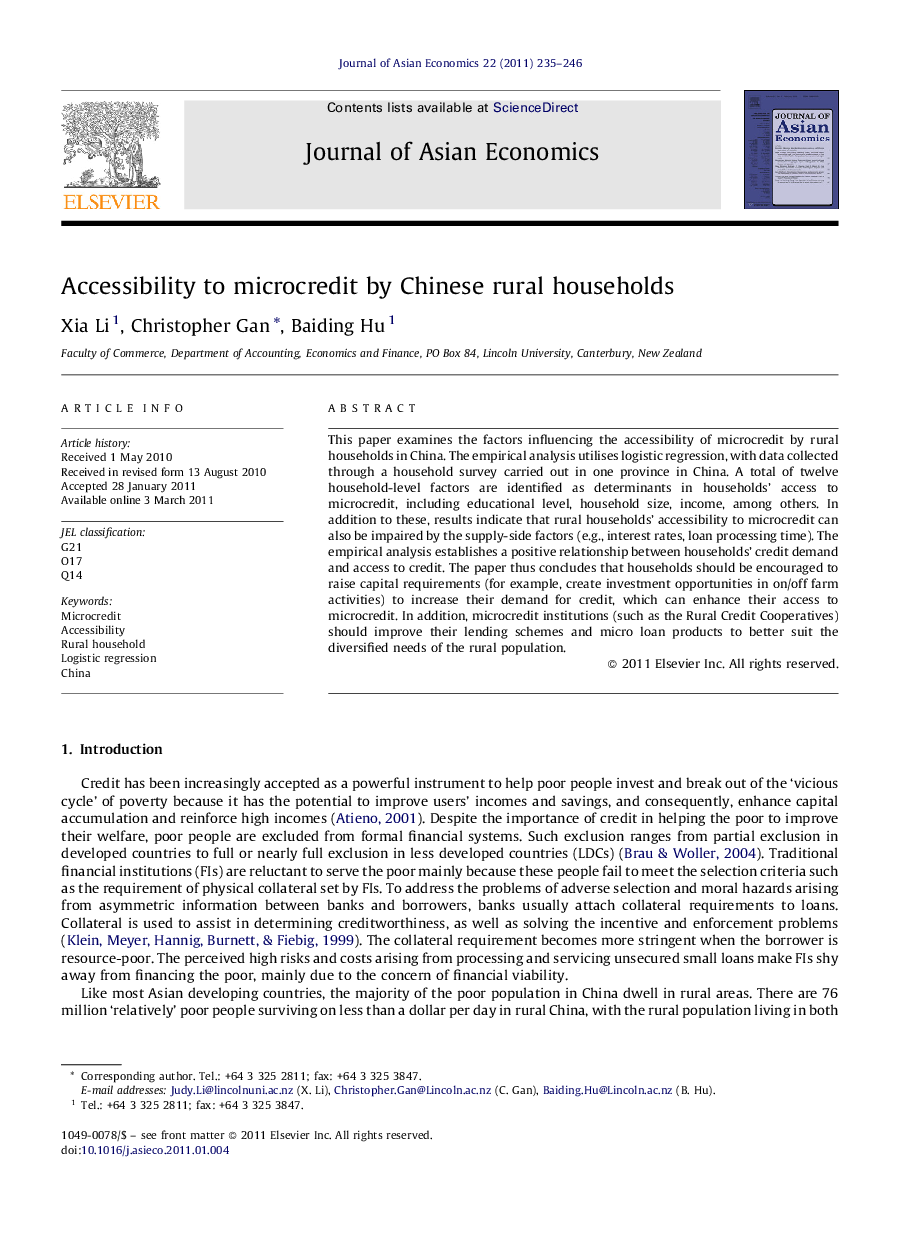| Article ID | Journal | Published Year | Pages | File Type |
|---|---|---|---|---|
| 5087469 | Journal of Asian Economics | 2011 | 12 Pages |
Abstract
This paper examines the factors influencing the accessibility of microcredit by rural households in China. The empirical analysis utilises logistic regression, with data collected through a household survey carried out in one province in China. A total of twelve household-level factors are identified as determinants in households' access to microcredit, including educational level, household size, income, among others. In addition to these, results indicate that rural households' accessibility to microcredit can also be impaired by the supply-side factors (e.g., interest rates, loan processing time). The empirical analysis establishes a positive relationship between households' credit demand and access to credit. The paper thus concludes that households should be encouraged to raise capital requirements (for example, create investment opportunities in on/off farm activities) to increase their demand for credit, which can enhance their access to microcredit. In addition, microcredit institutions (such as the Rural Credit Cooperatives) should improve their lending schemes and micro loan products to better suit the diversified needs of the rural population.
Related Topics
Social Sciences and Humanities
Economics, Econometrics and Finance
Economics and Econometrics
Authors
Xia Li, Christopher Gan, Baiding Hu,
